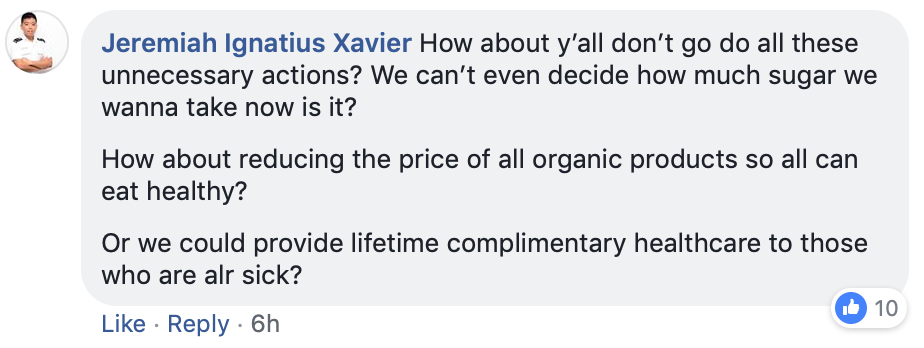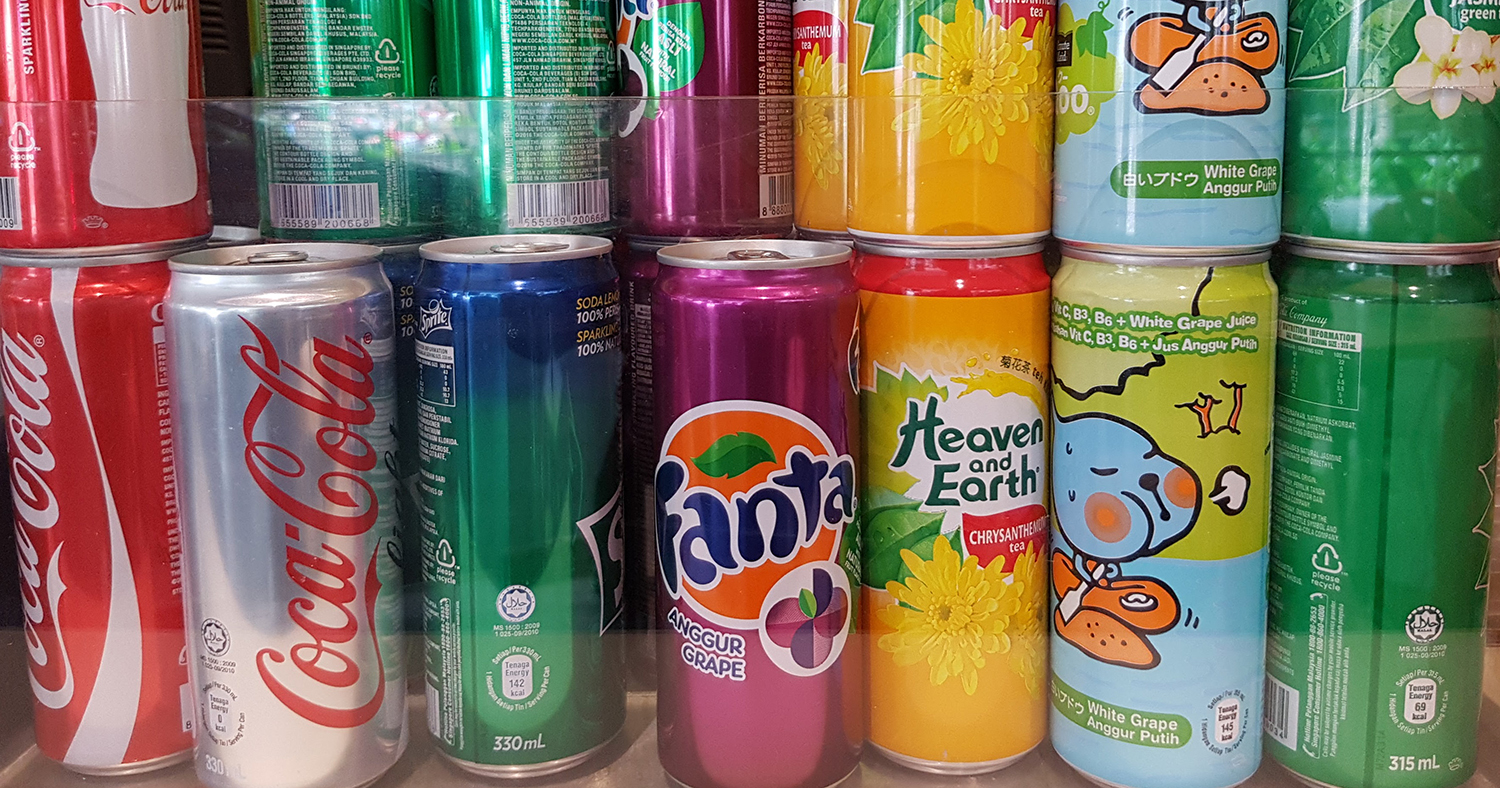The government launched (yes, another) public consultation on Tuesday, December 4, this time seeking feedback on proposed measures to reduce Singaporeans' intake of sugar.
Specifically, in this exercise, from what the government labels as "pre-packaged sugar-sweetened beverages".
Simply put, pre-packaged sugar-sweetened beverages are mostly packet, canned drinks or bottled drinks that have added sugar. This would include green tea, Coca-Cola, Pepsi, and other soft drinks.
Why do Singaporeans need to reduce our sugar intake?
HPB recommends that we limit our daily intake of added sugar (found in sweetened drinks, fruit juices, honey, jam and processed foods like sweets) to eight to 11 teaspoons.
According to MOH, Singaporeans are consuming 12 teaspoons of sugar every day on average. More than half of Singaporeans' daily sugar intake, it says, comes from drinks that have sugar added to them.
And of these sugared drinks, pre-packaged ones form the bulk of sweetened beverages that Singaporeans consume.
In fact, MOH says that more packet and canned drinks are consumed per person per day in Singapore than in many other Asian jurisdictions.
Pre-packaged sweetened beverages come with varying levels of added sugar. Drinks that contain mid to high levels of sugar come with an average sugar level of five teaspoons — that's almost half of the recommended daily intake in just one small packet or canned drink.
As most of us know by now, a higher sugar intake is linked to an increased risk of obesity and diabetes. Singapore currently has the highest prevalence of diabetes among developed nations, said MOH.
What is MOH proposing?
Through the public consultation, MOH wishes to get feedback on four possible measures that can reduce Singaporeans' intake of sugar from packet and canned drinks:
- A sugar tax on manufacturers and importers of packet and canned drinks.
- A ban on the sale of packet and canned drinks with higher sugar levels.
- Restrict or ban advertising of less healthy packet and canned drinks.
- A mandatory nutritional label on packet and canned drinks.
These measures will only affect pre-packaged drinks.
Made-to-order drinks like kopi or bubble tea are not included because consumers can adjust the sugar levels desired. For example, you can order kopi siew dai (coffee with less sugar) or customise your bubble tea with lower sugar levels.
According to TODAY, it is unlikely that the sugar tax will lead to higher beverage prices as drink prices are price-elastic, which in non-economic-speak means manufacturers will see a significant drop in demand if prices are raised.
Elsewhere in the world, other countries like Hungary and the UK have seen positive results from the implementation of tiered sugar taxes. In the UK, for example, more than half of manufacturers reformulated their products.
Reactions online are mixed
Reactions online to the proposed tax appear mixed. While some see this move as unnecessary government interference in personal decisions, others welcomed the ban on sugar, and called for the government to do more in promoting healthier options:









If you wish to contribute your feedback, you can do so at http://www.reach.gov.sg/sugarydrinks from now till January 25, 2019.
You can read MOH's announcement on this here.
Top image by Joshua Lee.
If you like what you read, follow us on Facebook, Instagram, Twitter and Telegram to get the latest updates.
